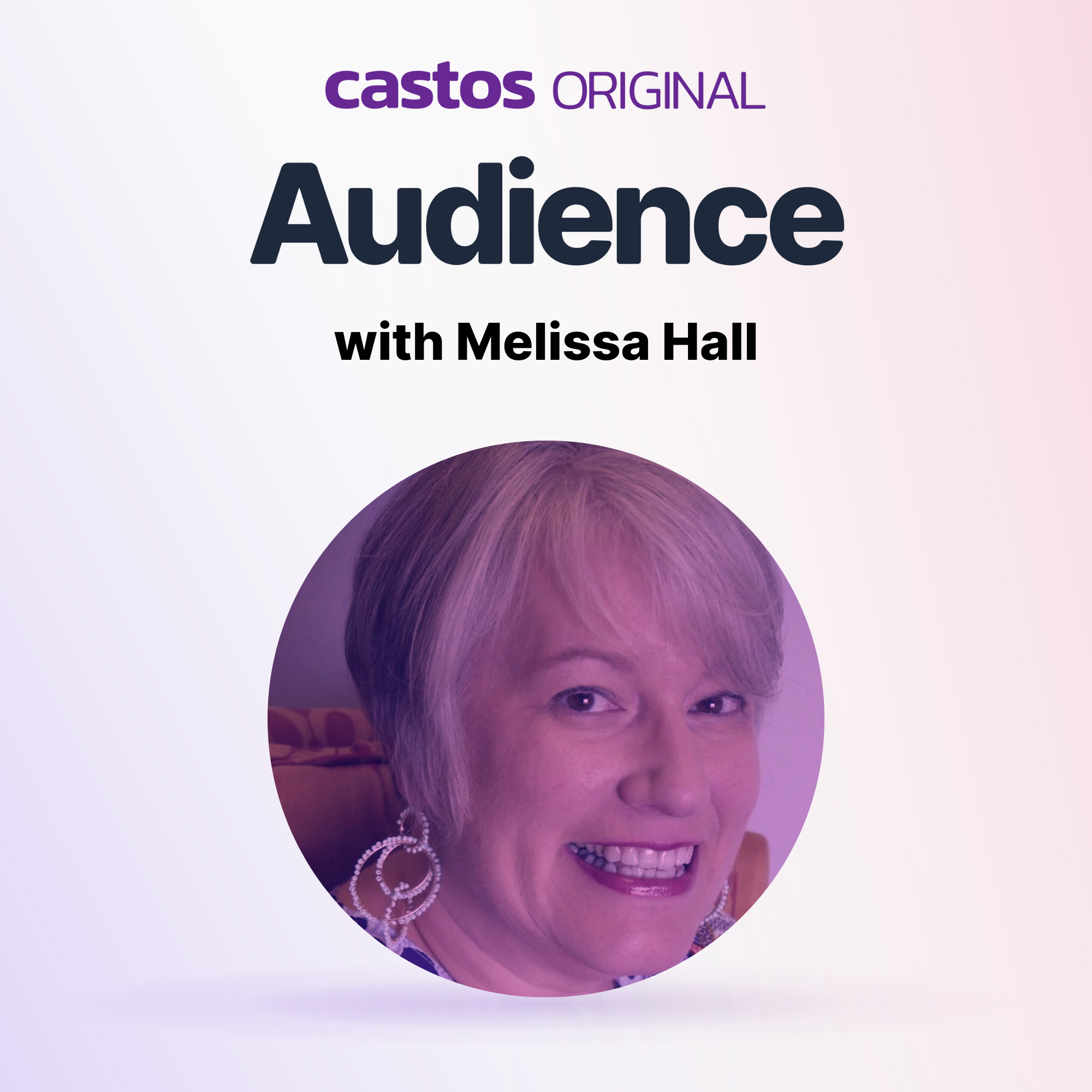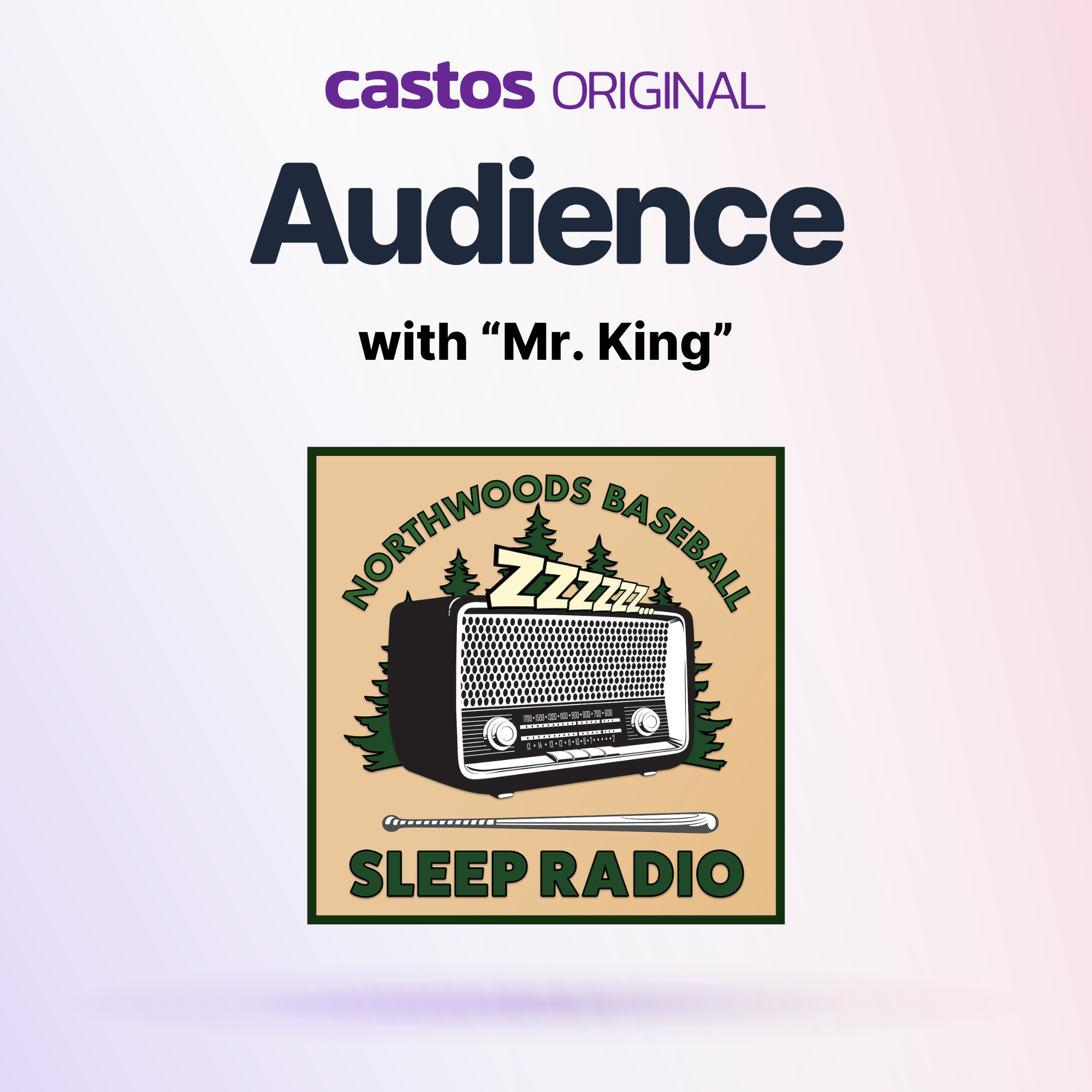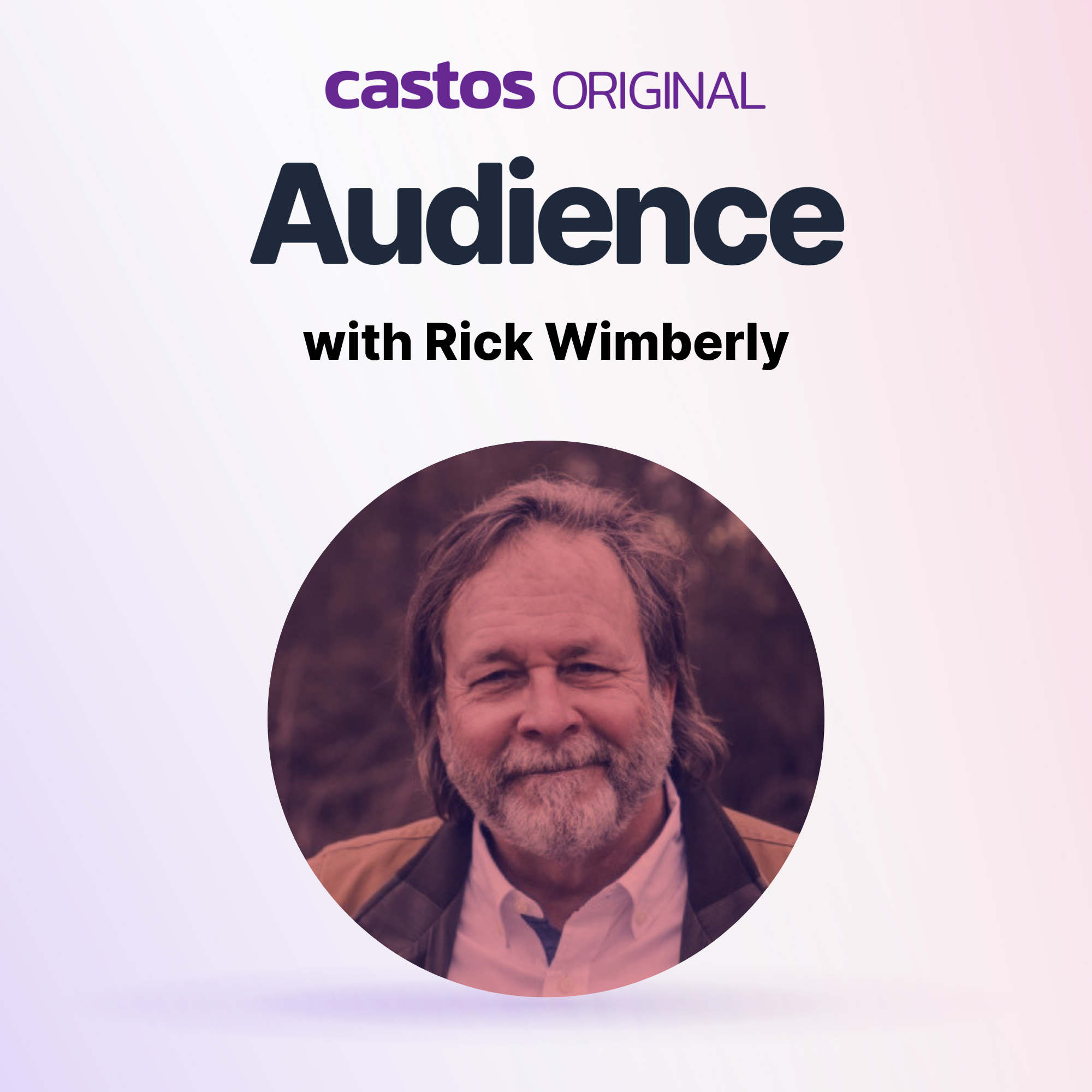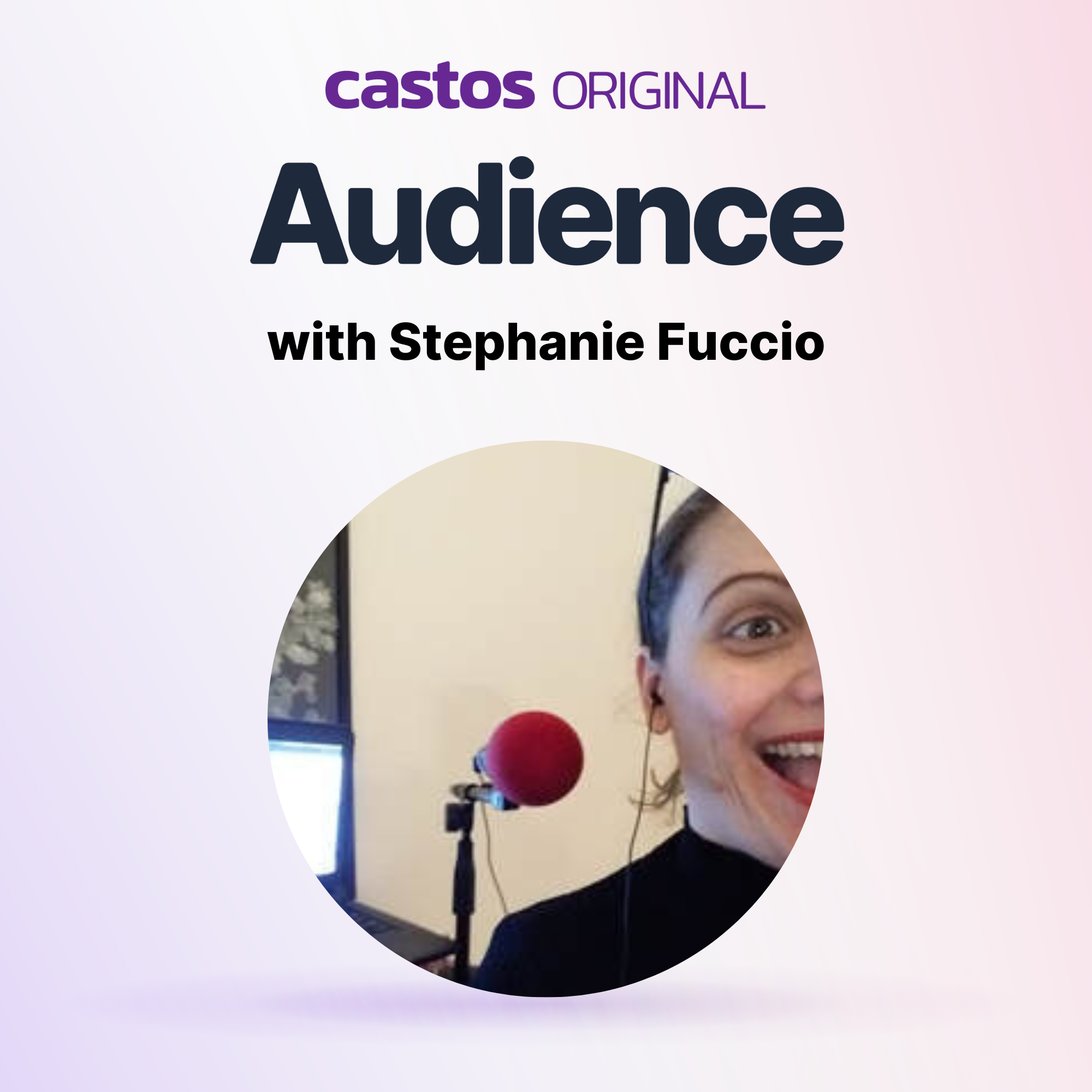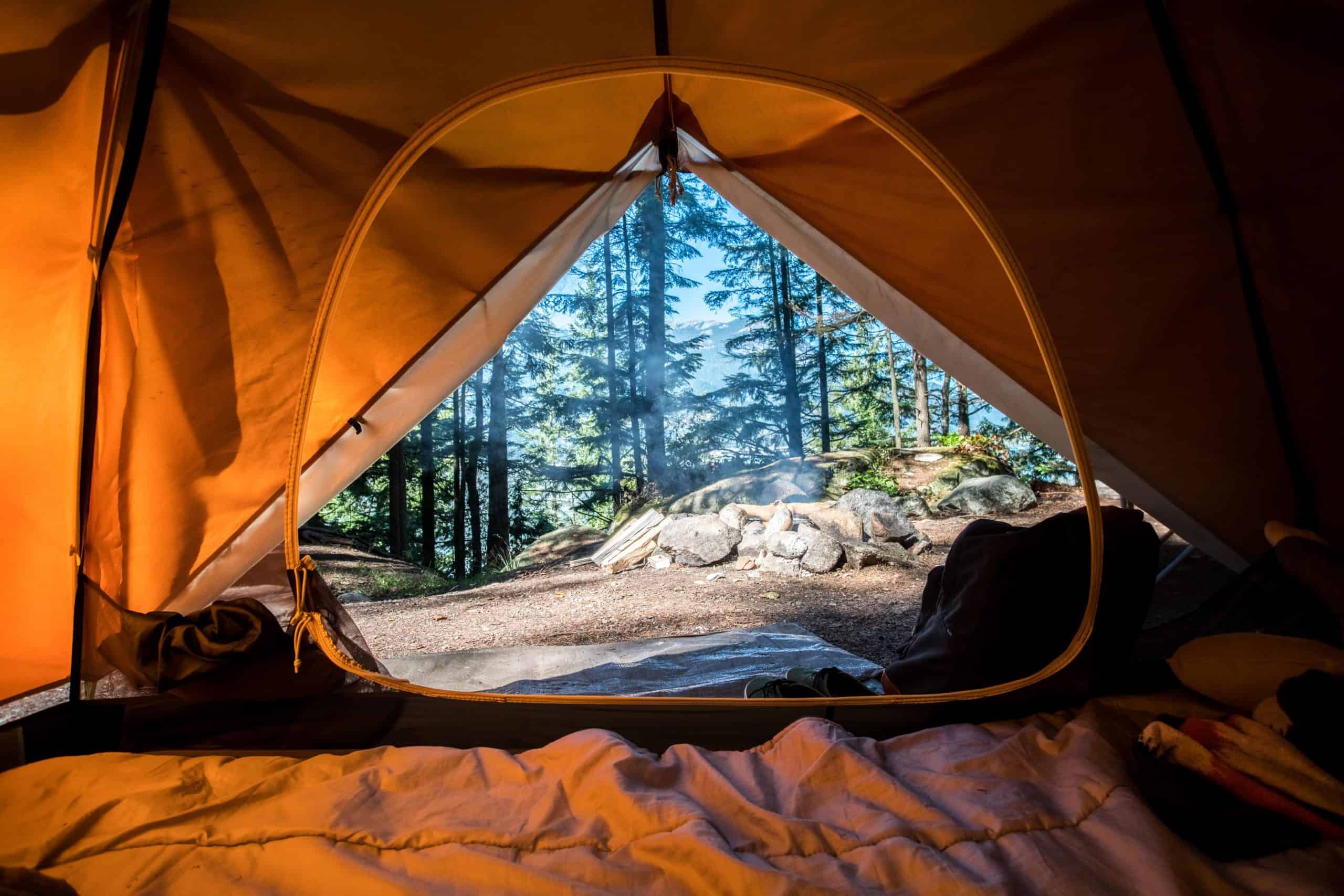Episode Transcript
[00:00:05] Speaker A: I recently had breakfast at a local haunt in my hometown called the Sage Mule. It was really good. I had the blue plate special with eggs, bacon and a biscuit, all locally sourced. And because I am a Southerner watching his cholesterol, I had a half and half tea.
Now, typically, I don't take my field.
[00:00:22] Speaker B: Recorder when I go out to eat.
[00:00:24] Speaker A: But my recent conversation with Melissa Hall got me thinking about all the different ways that food can help tell stories many Southerners know.
[00:00:33] Speaker C: A sweet potato pie and a sweet potato casserole. And maybe now, I guess, for the 21st century, a sweet potato chip. But to think about the sweet potato not as the end product on a dining table, but as a way to feed yourself, to build a business, to feed your community, that's a gravy story through and through.
[00:01:02] Speaker A: Next, Melissa takes us inside the podcast's gravy and talks about all the ways she and her team use food as a way to tell bigger, more expansive stories.
My name is Stuart and this is Audience, a Castos original series where we go behind the scenes of all kinds of different podcasts to uncover their creative process.
Before we get to all the creative stuff, just a quick note for all the podcasters out there, creativity is the most important part of the process. And without it, your podcast or your show probably won't get very far. But you also need a support system, and usually that means money. We can help you there. Casos lets you monetize all of your episodes, even the old ones, with just a press of a button. There's no chasing sponsors, no extra editing work, none of the headache. You can even tap into your support network. Let your audience directly support your podcast through one time or recurring donations with Castos commerce. If you want more information about it, check out the links in our show notes. Okay, let's get back to it.
[00:02:08] Speaker C: My name is Melissa Hall, and I am the lead host of Gravy Podcast, a production of the Southern Foodways Alliance, and a part of Apt Podcast Studios.
I'm a native Kentuckian. I grew up in Kentucky, went to Center College, which is a small liberal arts school in the geographical center of the state, and then to law school in Kentucky. And I went to law school because I wanted to be a public defender. And I was a public defender for three years. And at the end of those three years, my husband's career took us on the road.
[00:02:48] Speaker A: When they got to Mississippi, Melissa and her husband began a family and her career eventually took an interesting turn.
[00:02:55] Speaker C: It's important to note that when I graduated from law school, I got two major gifts. I got a briefcase. Beautiful, beautiful briefcase. And I got a skillet. And the reality is that skillet was the totem of my future.
[00:03:12] Speaker A: It set her off on her journey, where she traded the courtroom for the kitchen, specifically, the world of food journalism. Thanks to the skillet she was given, melissa has been fostering a love for cooking all these years, and she got pretty good at it.
[00:03:27] Speaker C: When I found myself in Oxford, Mississippi, I learned probably within two years of living there about the Southern Foodways Alliance. I volunteered at the 2003 symposium, where the symposium theme was appalachia. I volunteered to curate their pimenta cheese contest. I wrote a book about pimenta cheese with 350 pimenta cheese recipes. I made something close to 13 gallons of pimenta cheese for a pimenta cheese tasting. And after that, I was utterly hooked. And so I was a volunteer for a few years because SFA was at that time a pretty young organization.
And I became SFA's fourth employee in 2000, maybe six or seven. And so my responsibilities grew the longer and longer I was with SFA.
[00:04:27] Speaker A: The goal of the Southern Foodways Alliance is to document, study, and explore the diverse food culture of the changing American South, and they've undertaken a multimedia effort in order to do so. SFA has everything from oral histories to a magazine, a film series, and of course, their podcast, Gravy.
[00:04:48] Speaker C: So I would describe it like this. We tell the stories of the changing American South through the foods we eat.
Gravy storytellers showcase a south that's constantly evolving. That Gravy storytellers are using food as a means to dig into lesser known corners of the region. They're complicating stereotypes, they're documenting new dynamics, and they are giving voice to the unsung folks who grow, cook, and serve our daily meals.
That's what gravy is.
[00:05:26] Speaker B: Well, one thing that's striking to me about it is you talked about the storytelling. You're utilizing professional storytellers people with real reporting and producing chops to tell your stories. And I think there would be a lot of pressure for an organization just to kind of do this internally, just have someone from the company just kind of record these conversations and okay, that might work, sure. But I don't know that you really accomplished what you talked about, about growing that audience and telling those stories.
How did you guys arrive at that dynamic?
[00:06:03] Speaker C: So I'm laughing because we, from time to time, look at one another and say, we've done this the hardest way there is to do it. So I think for us, though, the decision to do it the hard way really comes from this belief. The folks who work at the SFA know a lot about the American South. We know a lot about Southern food.
That said, what we don't know is about the foodways traditions in Wind, Texas. We don't know the foodways tradition of a Latino community in New Orleans. But there are people out there who are people who are in those communities, of those communities, who have the connections, who will tell a way better story than we would if we read a couple of articles and had a conversation.
So that's part of it. I think the other part of it is what the SFA has always done best is essentially to sort of step out of the frame, to use a photography and film metaphor in this very audio world. But to tell the story best, we need to get out of the way. And so telling the story best always for us means letting the person who knows the place, letting the people who know the work, have center stage while we stage, manage, and produce.
[00:07:51] Speaker B: There's more things we don't know than we actually know. So I think when you kind of broaden that net and have different producers and reporters with different backgrounds, they're telling stories that I don't think we would have thought of otherwise.
[00:08:04] Speaker C: Yeah. We began a few years ago at the urging of a podcast advisor using this sort of, I will say simple but not simplistic prompt, which is, I am telling a story about X. And it is interesting because y. And that for years, was the prompt we used when reporters or producers reached out to us to say, what about this?
Our threshold question is, if you can answer that, if you can fill in those blanks successfully, then let's move on and talk about who are the voices who will carry this story and all of the things then, that go into creating a rich and deep narrative story.
[00:09:02] Speaker B: And I think one of the things that I think Gravy does so well that I think is really, really important in any kind of storytelling, the niche of them being stories about food is really just kind of a launching point for telling a bigger story. And I have this saying that I use, is that when I try to tell stories, I try to tell stories.
[00:09:24] Speaker A: That might not be for everyone, but.
[00:09:26] Speaker B: They could be for anyone.
And I think when you kind of get that balance of, yes, it is about food, but anybody, even if you're not a foodie, even if you're not from the south, if you're just someone who's intellectually curious about the human experience, about culture, then I'd say Gravy is the podcast for yeah yeah.
[00:09:44] Speaker C: And so what we do at Gravy is we have an editor in chief that is Sarah Camp Milam, and there is a managing editor, Roz Bentley. She works primarily on Gravy journal. And then we have an editorial assistant in Olivia Terenzio, who focuses entirely on the podcast. And what Sarah Kemp and Olivia know is how to craft a story. And so they are giving every producer who produces for us essentially, I don't know, it's not a template, it's not an outline. It lives there in the middle world.
But essentially, we are putting in every producer's hands the tools that say, these are the elements necessary to tell a compelling, specific story that reveals something about this region through food. And so we want producers voices we want producers experience, we want producers skill sets, we want their knowledge of their communities. But we're also really clear on the front end what it takes to tell a Gravy story. And I think that has made know we hear all the time on the journal side that people enjoy the writers, enjoy the experience of being edited by Sarah Camp Milam and Rosalind Bentley. And we are what we also hear on the podcast side is that people enjoy the experience of having this true editorial layer in podcasting, which I think is a little bit unusual. And we also do fact checking. So we are giving our producers and reporters a great deal of support and a very clear framework for how to make this work.
[00:11:57] Speaker B: I guess it works both ways, right? I mean, I think as creators and producers, I think the expectation is that we want people to give a lot of creative latitude to us. But I think it is kind of reciprocal. I think you do have to kind of also be willing to take direction and work within parameters that they set.
SFA is, I think, 100% within your rights to do that.
If you want to tell a story for Gravy, you could do it. But we do have a framework under which it needs to be done.
[00:12:29] Speaker C: Yeah, and again, I think if we showed up with that at the rough mix stage, that's a problem. And it's interesting because in the print world, every thinking writer wants a great editor. I mean, there are whole books about that sort of writer editor relationship.
I think what we are doing is a little bit unusual in the podcast world, but I also think it's what makes Gravy podcast sustainable and it's what ensures that the stories we tell are excellent.
[00:13:08] Speaker B: Let's get into some of those stories because they really are excellent. I've listed off three here just because three the rule of three or whatever. There's a lot of great episodes. Seriously, go listen to all of them because everything I've heard is just really good and really engaging. But I enjoyed in November of 2022, a producer named Kayla Stewart made a really great story for you called The Joyful Black History of the Sweet Potato. And the synopsis of it is really just kind of the history of the sweet potato and particularly how black folks in the south have really thrived, growing and selling and creating just wonderful food with the sweet potato. I'm a lifelong Southerner myself, so sweet potatoes are just kind of like a big part of my diet. However, I got to say, that guy making sweet potato vodka, yeah, that was shocking to me. I need to go to Arkansas to try that.
[00:14:04] Speaker C: Exactly.
That's what a Gravy story is.
Everybody knows I'm not going to say everybody, many Southerners know a sweet potato pie and a sweet potato casserole. And maybe now, I guess for the 21st century, a sweet potato chip, but to think about the sweet potato not as the end product on a dining table, but as a way to feed yourself, to build a business, to feed your community, that's a gravy story through and through.
[00:14:44] Speaker B: Yeah. And again, it's one of those things that it tells, I think, a bigger story about what you call the changing south and I think maybe complicating those stereotypes. I like that you phrased it that way because I get this a lot. I'm a Southerner, not the deep South, North Carolina, but we're in the know there's stereotypes about Southerners, and I think they're ones that people are actually kind of comfortable holding. And it's more complex, I think, than some folks would, I think, care to realize.
[00:15:17] Speaker C: Absolutely.
It is culturally diverse and always has been. It is racially diverse and always has.
It is I think that it is common to look at the south as the source of the country's problems. I don't agree with that view of the think. You know, as with every part of the country, we have a great deal to atone for, particularly on the subject of race and racism in the south. But I think the reality is it is more likely that solutions to national problems are going to come from the south, because there are folks here who've been wrestling with these problems, have been wrestling with the issues that face the region for longer than people in other parts of the country have been thinking about those issues.
[00:16:19] Speaker D: In April 2021, Harvey and his wife Donna opened Delta Dirt Distillery, an extension of the family's longtime farming roots and an opportunity to bring something new to their community.
[00:16:29] Speaker E: I will be totally honest with you. I did not know how the product or us or how it would be received by the public, by the local community even. And I've been pleasantly surprised that people have been supportive of the business, the concept somewhat intrigued, like I was when I first started this.
[00:16:53] Speaker D: The response, Harvey says, was tremendous. Many enjoyed their products like a tall cotton gin and a sweet blend vodka. But it was the sweet potato vodka that really captured people's hearts, particularly Helena's. Black residents. In the 1940s and 50s, black Americans from the nearby Mississippi Delta and other parts of Arkansas moved to Helena, and the city is now three quarters African American. Many in the community look to businesses owned and operated by black Americans, just like Delta Dirt Distillery as an extension of this rich cultural history.
[00:17:27] Speaker B: All right, so Kayla comes to you, pitches this idea. What was it that made you guys say, yes, this is a Gravy story.
[00:17:35] Speaker C: So the sweet potato vodka, honestly, because that was such an interesting sort of agricultural byproduct story of a sweet potato entrepreneurship story that we hadn't heard. And honestly, the other reason is Kayla herself. Kayla has written for Gravy Journal. Kayla has spoken at SFA events. We know the kind of reporter she is. We know the ways in which she engages with her subjects and her ability to tell a multilayered you don't even we didn't even have to think twice.
[00:18:16] Speaker A: About and if hers was particularly interesting.
[00:18:20] Speaker B: Because I think she lives in New York. Yes, but she's a Southern transplant in New York, and so I think that's pretty neat, too, that it's very much a Southern story. But I think it also kind of highlights that Southern culture has a really.
[00:18:36] Speaker A: I'll say international footprint.
[00:18:38] Speaker B: Yeah, well, that is sort of a really good segue into another story that pretty recent. One, as of this recording aired in August of 2023, tasting Kentucky and Tiananmen that was Ishanta Core who made that story, and premise of that is Kentucky Fried Chicken having stores in China. And I think one thing he I think was pretty on the nose about was that the south has had a very big impact on entrepreneurship and capitalism and businesses, not just in America, but.
[00:19:12] Speaker A: All over the world.
[00:19:14] Speaker C: That story was a yes, because you were mentioning earlier kind of the cultural, I don't know, weight that other people put on the south. One of those things is fried Chicken. And while I think most Southerners will happily embrace fried chicken, this was a way to tell a fried chicken story that no one you know. Here you have Kentucky Fried Chicken, which is born in Corbin, Kentucky, which is now part of Yum Brands, which is a conglomerate based in Louisville, Kentucky.
And you've got a story of Kentucky Fried Chicken that has taken hold in China in such a way that it's one of the largest franchised businesses there. They're building processing plants and all sorts of things to sort of feed China's passion for Kentucky Fried Chicken. Meanwhile, here we are, kind of like, I'd rather go to Popeyes. So we're all over that story.
[00:20:26] Speaker F: KFC has over 25,000 restaurants worldwide. It's in 24 countries in Africa alone, many more than McDonald's. When I was combing through news clippings and video archives, there's no shortage of people going to extremes to obtain some KFC.
[00:20:42] Speaker C: This is Gaza, where there is no KFC.
[00:20:44] Speaker F: In this news clip from 2013, people use tunnels to get KFC from Egypt into Gaza for $27 a bucket.
[00:20:53] Speaker C: It's a dinner that does not come cheap.
[00:20:56] Speaker F: To understand how exactly KFC rose to global Ubiquity, let's go to China, where KFC is one of the most popular brands full stop in the country. KFC's success in China is a business story, of course, about supply chains and ingenuity, but it also represents the idea of America through Southern food and how that gets exported to another.
[00:21:21] Speaker B: Know. I don't want to maybe when I talk about the south being more progressive than maybe people realize, I certainly don't in any way want to diminish the challenges we've had and still have.
[00:21:31] Speaker C: Me neither.
[00:21:32] Speaker B: One really interesting story there was, again, as of this recording, maybe the most recent one. Annie Fisher's beaten biscuits meant business. That story was produced by Mackenzie Martin, and it was really a nice profile.
[00:21:46] Speaker A: On a person I had never heard.
[00:21:48] Speaker B: About before until I listened to that.
[00:21:50] Speaker C: Yeah, so that story has a bunch of layers. First of all, for me, I don't know, in this Barbie moment, it has the layer of what it was to be a female entrepreneur at the turn of the 19th century to the 20th century. So that's one layer. But we need to set that aside, because with Mrs. Fisher, we're talking about something far more complex. Annie Fisher built a business in a time when she had no access to bank loans. And when I say no access, I mean, like, no one would loan her money because she was a black woman. So she has no access to capital. She has very little access to be able to purchase real estate and hold that real estate in her own name. And yet she uses this beaten biscuit business to build a catering empire that becomes a restaurant, that becomes also some fairly significant real estate holdings.
We love that story, and we love that story because it is about I mean, resilience is really too squishy and precious a word, because what Miss Fisher did was to make a business empire happen.
Not in a moment when you could say something hokey like, oh, she pulled herself up by her own apron strings. She did it in the face of systemic racism that told her over and over and over again that she had no business doing what she was doing. And that, I think, is what drew us to the Annie Fisher story. And like many stories about women, particularly women doing women's work, like cooking and sewing, a story that has largely been.
[00:23:58] Speaker G: Forgotten, hospitality adjacent roles were one of the few career paths open to women back then, black or white. And for Fisher, the kitchen became a place of creative expression. She was good at it. A common refrain even started, just let Annie do the cooking. In her 20s, she went to work at the Sigma Alpha Epsilon fraternity house at the University of Missouri and later for a prominent family in town, where one day her employer, a white lady, was like, annie, why don't you go into the catering business?
According to a speech Fisher gave to the National Negro Business League, she immediately realized that this could be a very financially lucrative move if she could get the support of this woman and her white friends. So she went for it. She began small, just selling hot rolls at first. Then she added pies, cakes, and what became her claim to fame, beaten Biscuits for ten cents a dozen, about $3 today.
[00:24:56] Speaker B: Well, Gravy's doing a really good job of bringing those stories to life through the podcast, through the oral histories, through the films, through the quarterly magazine. It's so cool what you guys are doing. Again, just as, like, a Southerner who really loves the good parts of the South, I should say it's really just kind of warmed my heart to discover this and really jump into this podcast. So thank you guys for what you're doing and for coming on the show today.
[00:25:25] Speaker C: Well, and I'll just say this as a lifelong Southerner, you can love this place and want it to be better. You can love this place and be disgusted by it from time to time, and you can love this place and work to improve it.
Those ideas in this sort of goodness I don't even know what to call this political moment we're in, but we seem to find ourselves in a place where those ideas are either or. And for me, and I think for most thinking Southerners, they're both. And.
[00:26:08] Speaker A: It seems to me like food and storytelling are a big part of any culture. I'm sure an anthropologist or historian could probably articulate it better than I could, but I do know good food when I taste it, and I know good stories when I hear them. As a podcast, Gravy gives us plenty of both. Full episodes can be found@southernfoodwaysalliance.org or anywhere they have podcasts.
And now it's time for our podcasting tip, where our guests share some wisdom with the rest of us.
[00:26:38] Speaker C: I'm Melissa Hall from Gravy Podcast, and my podcast tip is tell the story you want to tell in the way you want to tell it. I think Gravy podcast is an excellent example of the reality that if you've got a compelling story to tell and believe in your way of telling it, your podcast can find its footing.
[00:27:04] Speaker B: That's perfect. I wish I could high five you right now.
[00:27:13] Speaker A: Audience is a Castos original series. Our founder and executive producer is Craig Hewitt. Production assistance is provided by Esell Brill, Jocelyn DeVore, and Marnie Hills. Our website and logo design is courtesy of Francois Brill, our head of product here at Castos. This episode was written, edited, narrated, and produced by me. I'm stuart barefoot. Check out Audiencepodcast FM for more episodes or just search for it anywhere you get your podcasts next time on Audience I talk to Rick Wimberly about creating great moments in a podcast.
[00:27:50] Speaker H: What the host wants is those moments. It could be a sentence. It could be a paragraph. It could be an emotion. Moments.
